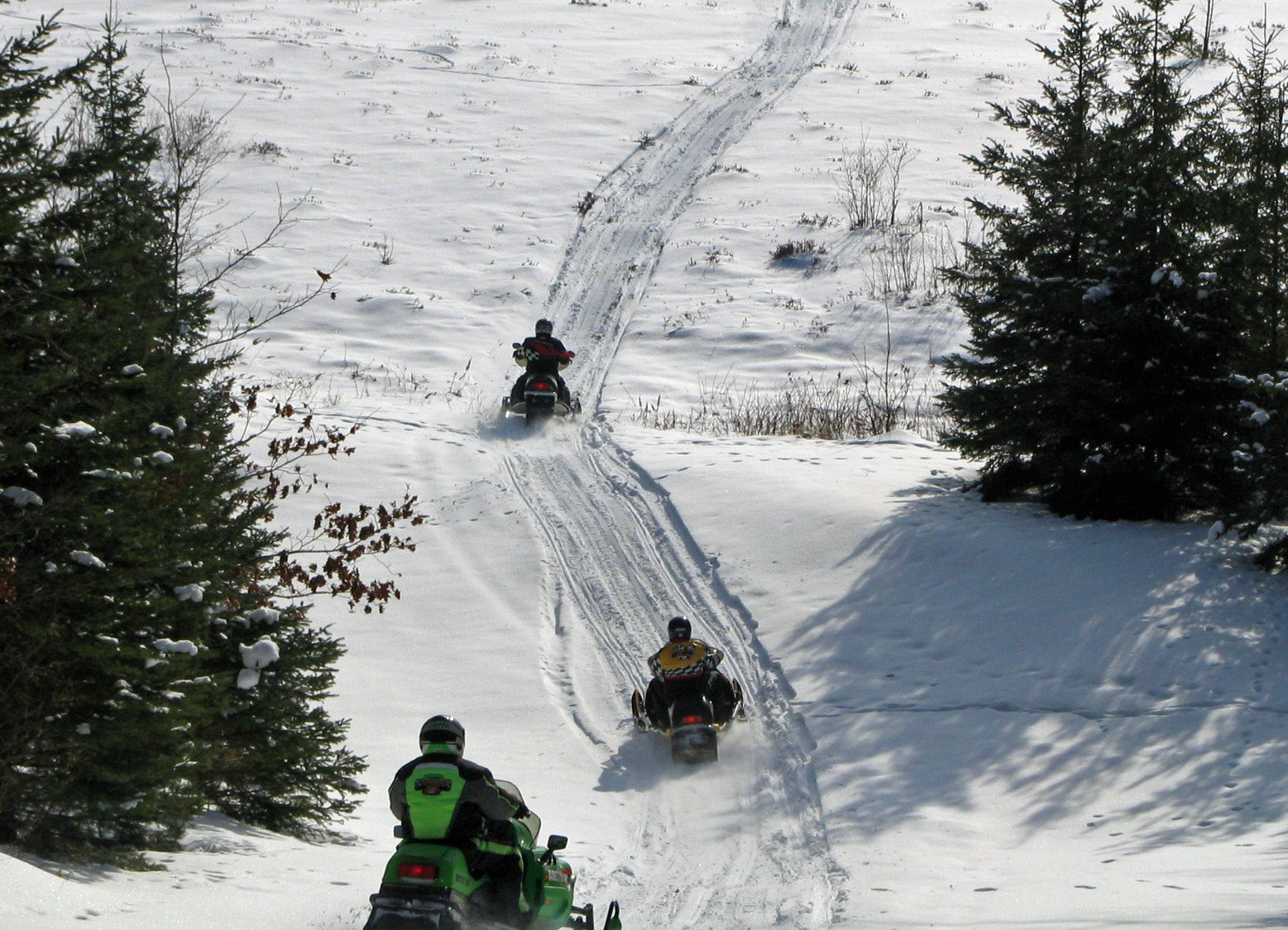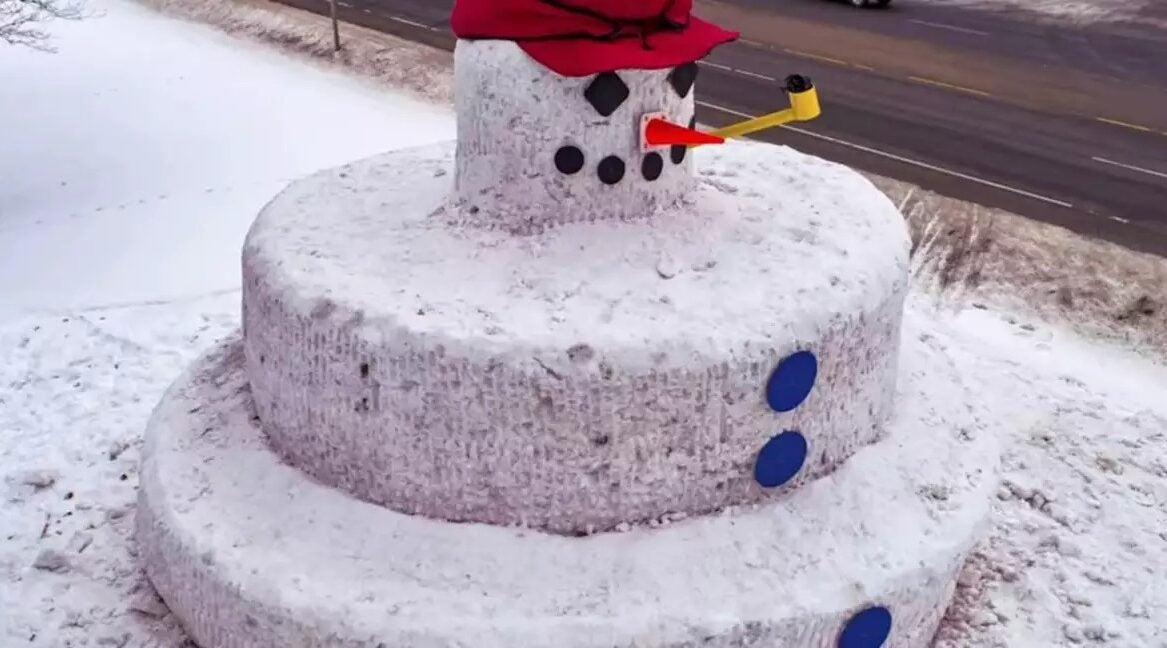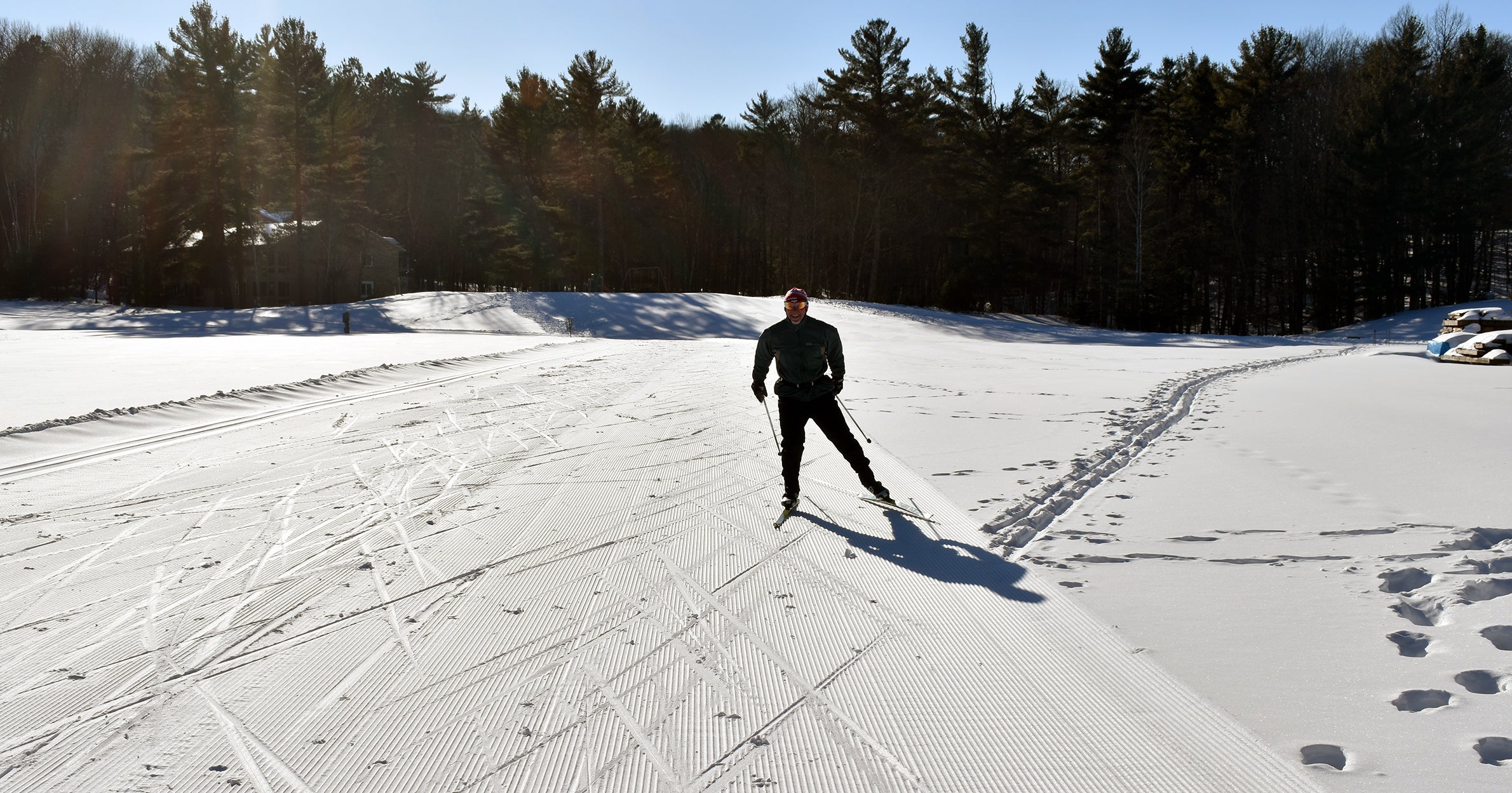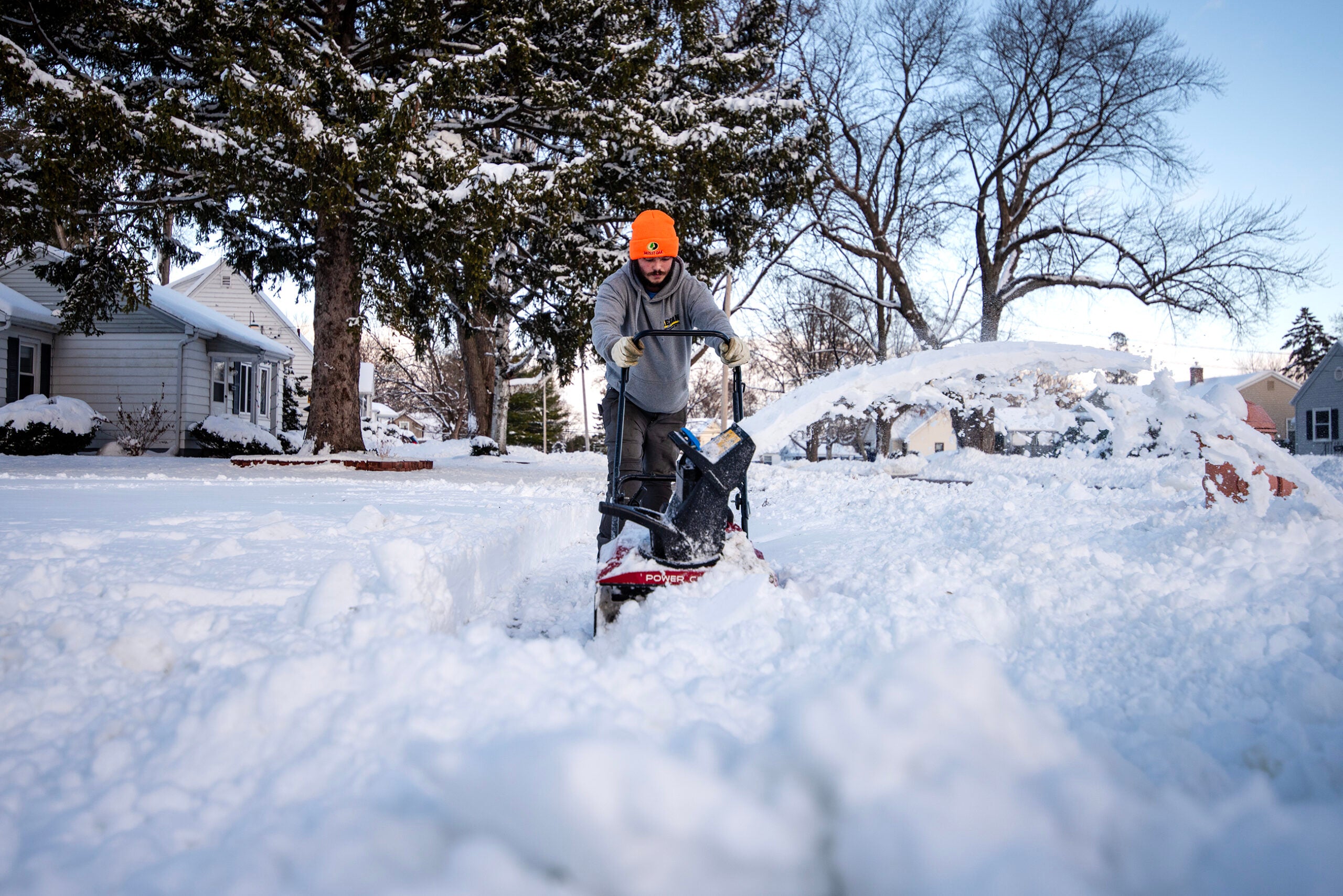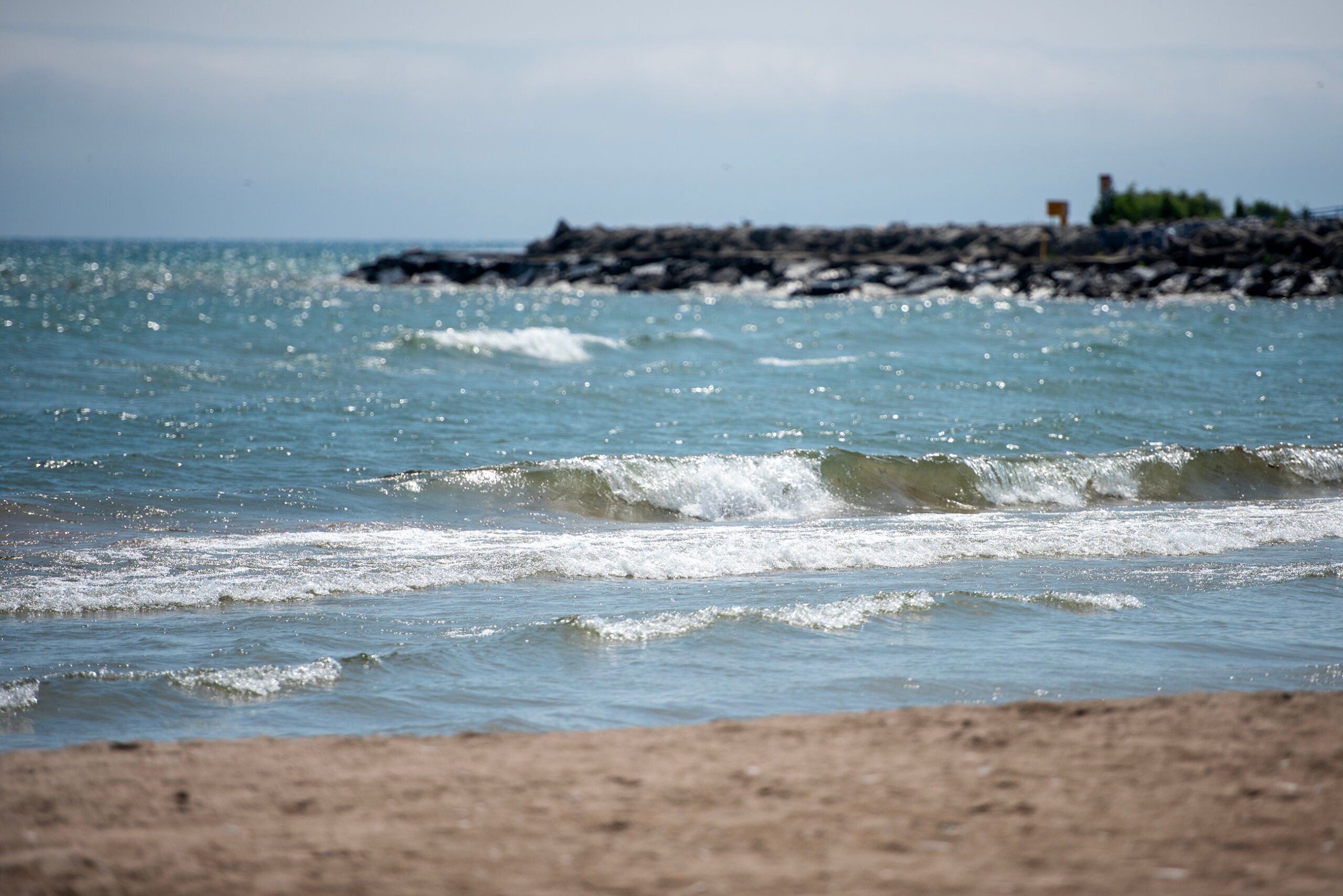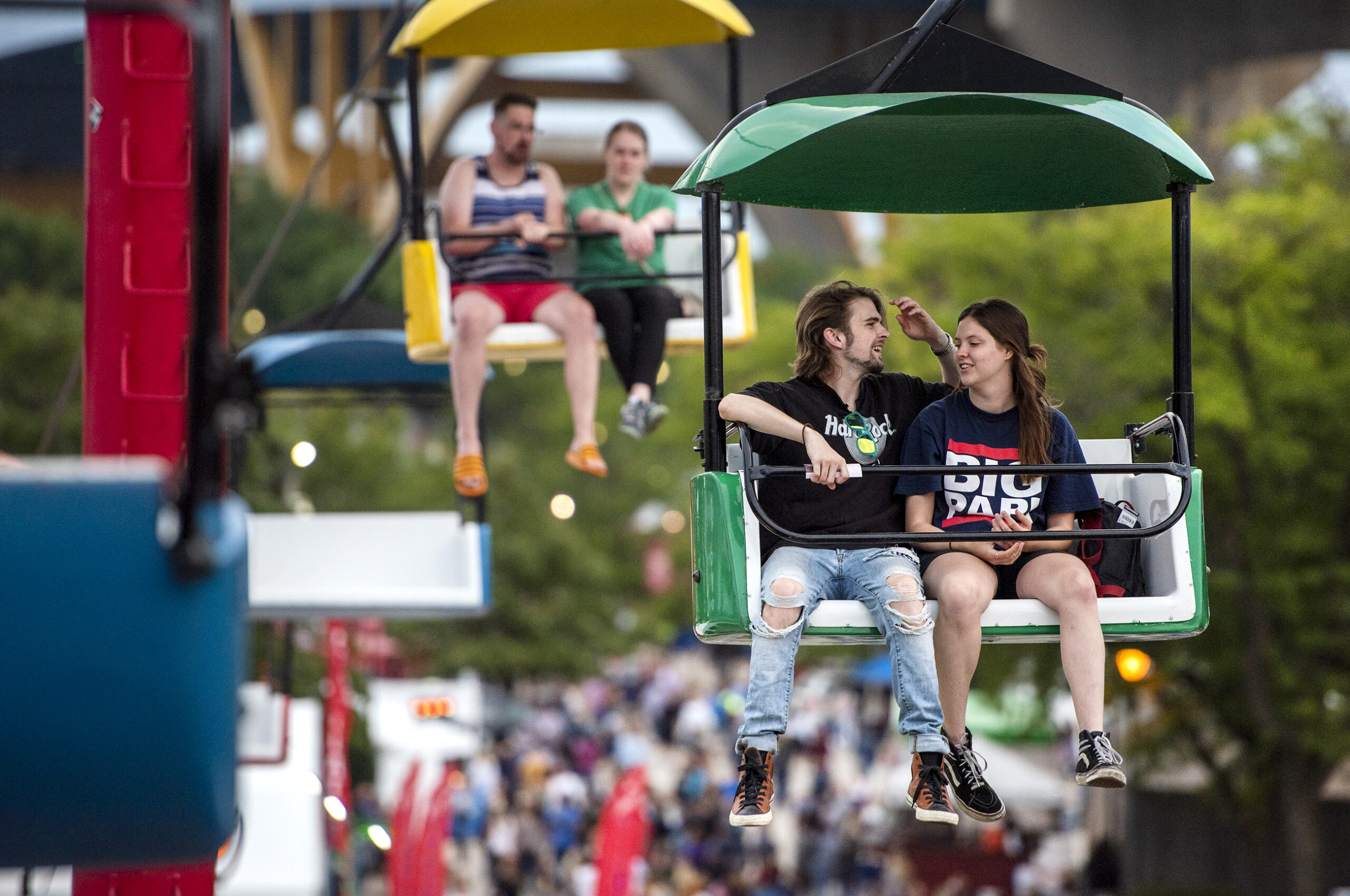A typical Wisconsin winter sees the seven-county Northwoods region come to life with visitors snowmobiling, cross-country skiing and ice fishing.
But not this year. On the first day of February, it was nearly 40 degrees in Minocqua and normally snow-covered trails were bare.
Krystal Westfahl, president of the Let’s Minocqua Visitors Bureau, said there’s very little snow on the ground in north-central Wisconsin, and none in the “foreseeable forecast.”
News with a little more humanity
WPR’s “Wisconsin Today” newsletter keeps you connected to the state you love without feeling overwhelmed. No paywall. No agenda. No corporate filter.
The state is experiencing an El Niño climate pattern this winter, which means the weather is warmer and drier than normal.
“Early on, we were super optimistic that we would still be able to get snow,” said Westfahl. “This has all just come to a head within this last week or two, where we’re not even opening (snowmobile) trails at all.”
The “unprecedented” weather has had a dramatic effect on businesses in the Northwoods that rely on winter activities to bring visitors to hotels, restaurants and local shops, she said.
Now, 15 economic development and tourism organizations — from Forest, Iron, Langlade, Lincoln, Oneida, Price and Vilas counties — are asking the state for help.
The Let’s Minocqua Visitors Bureau and Oneida County Tourism Council estimates the seven-county region lost about $6.5 million in revenue due to a lack of snow in December and January. According to the council, local businesses are reporting between 75 and 80 percent year-over-year losses.
“Our businesses are terrified,” Westfahl said. “A lot of people out there just don’t know how they’re going to be able to keep their doors open.”
Westfahl said the Northwoods organizations have had conversations with local state lawmakers about securing state or federal funding to help the area’s businesses survive.
She said those discussions helped bring the issue to the attention of the state Department of Tourism and the Wisconsin Economic Development Corp.
“There’s no silver bullet for this,” Westfahl said. “But if we can get enough people working on this and trying to figure out solutions to help support this small business economy here in the north, our hope is that we can all work together in order to make something happen.”
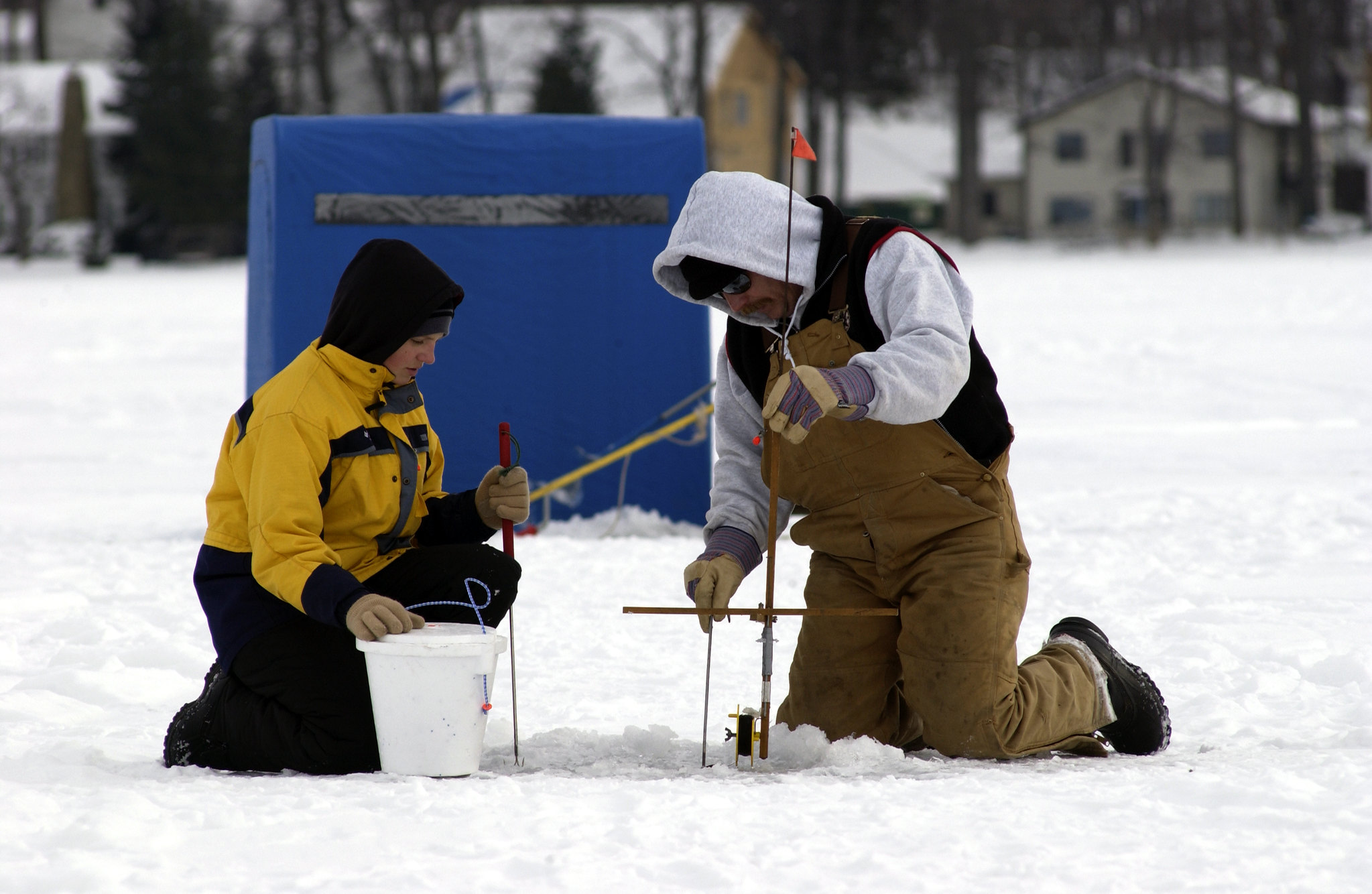
Weather affects winter activities outside Northwoods counties
Westfahl also said a lack of business due to the mild winter weather isn’t a problem that’s exclusive to the Northwoods.
“The entire northern half of Wisconsin is incredibly dependent on this tourism economy,” she said. “It is really daunting when you look at … what will this do not only for our area and our small businesses, but for the state of Wisconsin as a whole.”
In Sawyer County, some snowmobile clubs removed trail markers from lakes in response to unsafe ice conditions, according to a social media post from the Sawyer County Snowmobile ATV Alliance.
And to the east of the Northwoods, the annual Battle on Bago ice fishing tournament in Oshkosh canceled the ice fishing portion of the event on Lake Winnebago.
Glenn Curran, who is on the board that oversees the event, said Battle on Bago started in 2007 and has become the state’s largest annual ice fishing tournament. Curran said thousands of people usually attend the winter festival that also includes music, food and drinks.
But he said the board’s decision to cancel the ice fishing contest this year was a “no brainer.”
“It’s a safety issue, really — it really wasn’t a hard decision,” he said. “We’re not going to have a tournament with questionable ice conditions and put anybody’s life at risk.”
It’s the second time in Battle on Bago’s 17-year history that warm winter weather forced a cancellation, with the first coming in 2017, Curran said.
“We did move our event up a week to try to mitigate some of this warmer weather that typically comes at the end of February (or) early March,” he said. “But if you’re dealing with an outdoor event, this is what’s going to happen.”
In a statement, Travel Wisconsin spokesperson Logan Wroge said the agency is concerned about businesses and destinations across the state affected by the warm temperatures.
“We do not have real-time visitation, spending, or economic impact data,” Wronge said. “That information is captured in our annual economic impact report. However, we certainly are hearing from partners about the challenges they are facing.”
Wisconsin Public Radio, © Copyright 2025, Board of Regents of the University of Wisconsin System and Wisconsin Educational Communications Board.

